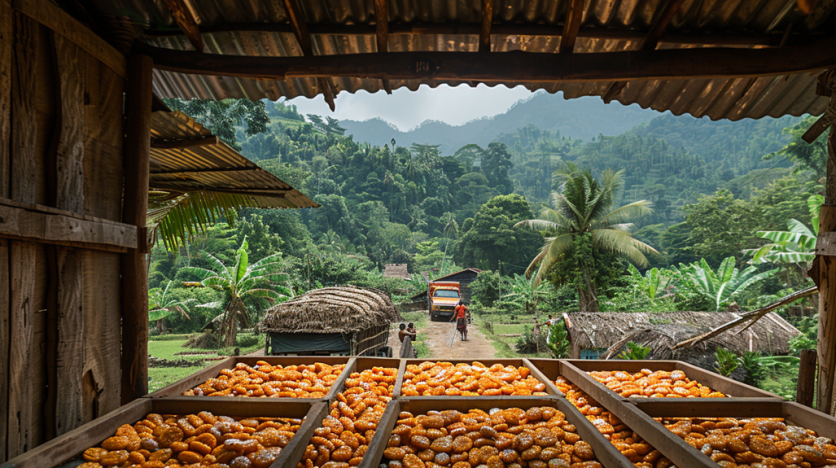
In the rural stretches of Malekula, new drying stations built from converted shipping containers sit near coconut plantations where local workers prepare harvested copra for processing. Nearby, recently delivered trucks from the CNO Future Fund navigate unsealed roads, connecting remote producers to newly formed supply hubs.
These scenes are the direct result of an unlikely source of capital: foreign investors purchasing citizenship in Vanuatu through the government's Capital Investment Immigration Plan, or CIIP. At the center of this shift is VIMB Services Limited, a government-designated agent managing the CNO Future Fund. The fund is part of a strategic move to channel citizenship revenue into renewable energy, agricultural innovation, and rural infrastructure.
In a region often left behind by global development finance, this initiative has become a case study in how private migration capital can serve public needs. It has also raised questions. Can a program long associated with financial secrecy and offshore risk genuinely deliver social value? VIMB is betting the answer is yes.
Turning Coconut Oil into National Power
Launched in late 2023, the CNO Future Fund is designed to transform the country's copra industry into a cornerstone of Vanuatu's clean energy ambitions. The plan includes building sustainable production capacity for coconut oil, which serves as a biofuel. The fund supports the construction of drying hubs, processing facilities, and logistics routes across islands such as Santo and Malekula. The investment is intended not only to drive exports, but also to power generators that feed into Vanuatu's electrical grid.
By the first quarter of 2025, the fund had processed 144 applications for citizenship, generating over 7.2 million US dollars in net investment and more than 9 million dollars in government revenue. Monthly production of coconut oil exceeded 230 metric tons, which is enough to power two one-megawatt generators that have already been acquired by the government. The fund also achieved 32.62 percent net asset value growth in its first year.
That growth occurred despite a major earthquake in December 2024 that damaged infrastructure and mills across the archipelago. Rather than retreat, VIMB used the disaster as proof of concept. Within weeks, over 70 percent of operations had resumed. Refurbished equipment was installed, transport routes were cleared, and new investments were deployed to reinforce supply chain resilience.
"This was the stress test. And we passed it," said Daniel Agius, Managing Director of VIMB. "We did not just restore production. We expanded it, because the communities we partner with needed it."
A New Regulatory Landscape
Following increasing international scrutiny, the Vanuatu government suspended the CIIP program in early 2025 for a full review. The result was a regulatory overhaul. The new rules require a minimum contribution of 165,000 US dollars per application. This includes 60,000 dollars to the government and a 50,000 dollar investment into a regulated domestic fund. Agents must now submit quarterly and annual reports, undergo audits, and prove that investments are not financed by loans or third parties.
Many agents failed to meet the new standards. VIMB did not. According to the Citizenship Commission, it remains one of the few fully compliant operators.
"The new rules didn't slow us down," said Agius. "They affirmed what we were already doing. We built the CNO Future Fund to be transparent, to be audited, and to create measurable outcomes."
From Commodity to Community
VIMB's focus is not limited to coconut oil. The fund is expanding into high-value timber, kava, and cocoa sectors, as well as planning accredited agricultural processing centers. These centers are expected to improve domestic value chains and support agri-tourism exports. In the last quarter alone, the fund created over 55 new jobs and opened 65 rural bank accounts for workers and suppliers.
One of its key investments is a 30 percent equity stake in Vanuatu Baskets, a local enterprise producing coconut-based goods. Another milestone was the acquisition of a plantation on Malekula Island. The purchase, completed over four quarters, secured long-term supply for the fund and created a best-practice model for plantation operations.
The fund has also introduced automation in de-husking and drying processes, reducing physical strain on workers and raising productivity. New container-based drying stations have been deployed in multiple locations, with plans to establish 15 hubs across Malekula and Santo.
"This is about scale, but also about equity," said Agius. "Every time we build a new station or partner with a farmer, we are expanding Vanuatu's capacity to generate income from within."
Critics and Consequences
Citizenship-by-investment programs are not without controversy. Some international observers argue that they risk becoming vehicles for tax avoidance or reputational laundering. Others question whether the benefits ever reach host communities.
VIMB's leadership is aware of the scrutiny.
"We're not blind to the global skepticism," said Agius. "That is why we focus on compliance and delivery. The funds go into projects you can touch, visit, and audit. That is how we earn trust."
While some of Vanuatu's previous agents have been stripped of their accreditation, VIMB continues to operate at full capacity. The company insists that its model can serve as a template for ethical, impact-focused investment migration.
A Model Worth Watching
The future of the CNO Future Fund depends on continued investor interest, successful government collaboration, and long-term market viability. But on the ground in Vanuatu, the results are already visible. Trucks move goods where there were once only footpaths. Aggregation hubs hum with activity. And coconut oil, once a stagnant commodity, is now part of a national energy plan.
Whether this approach becomes the new standard for citizenship-linked investment remains uncertain. What is clear is that, at least in this corner of the Pacific, passports are funding more than promises. They are funding power. And for many Vanuatu families, they are also funding a path out of poverty.
ⓒ 2026 TECHTIMES.com All rights reserved. Do not reproduce without permission.




